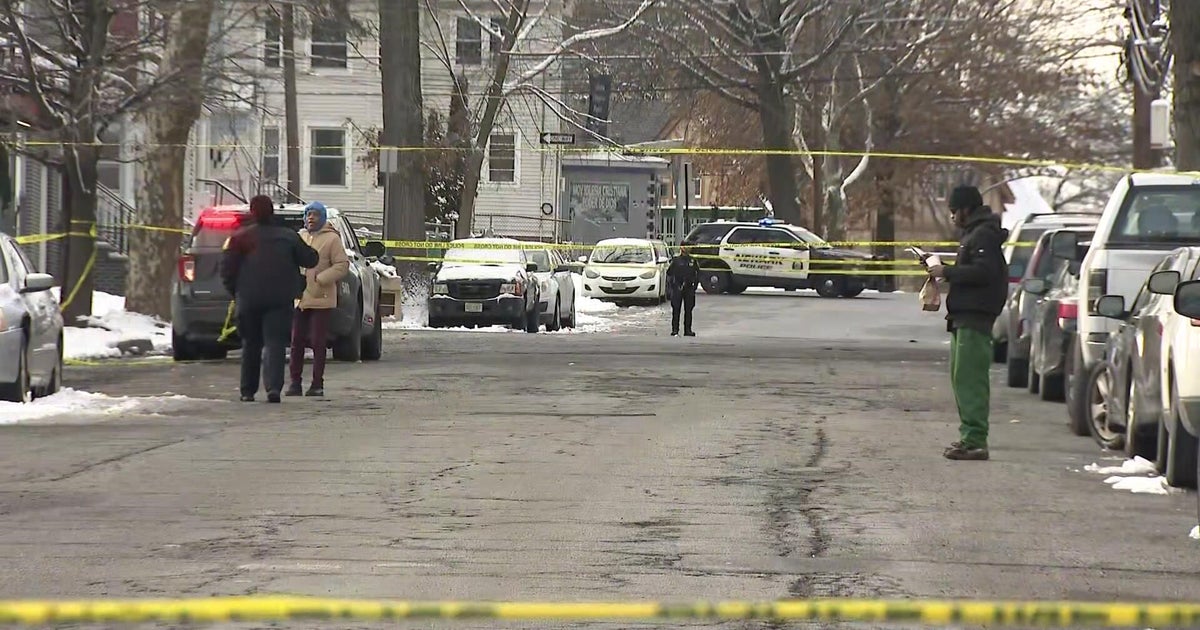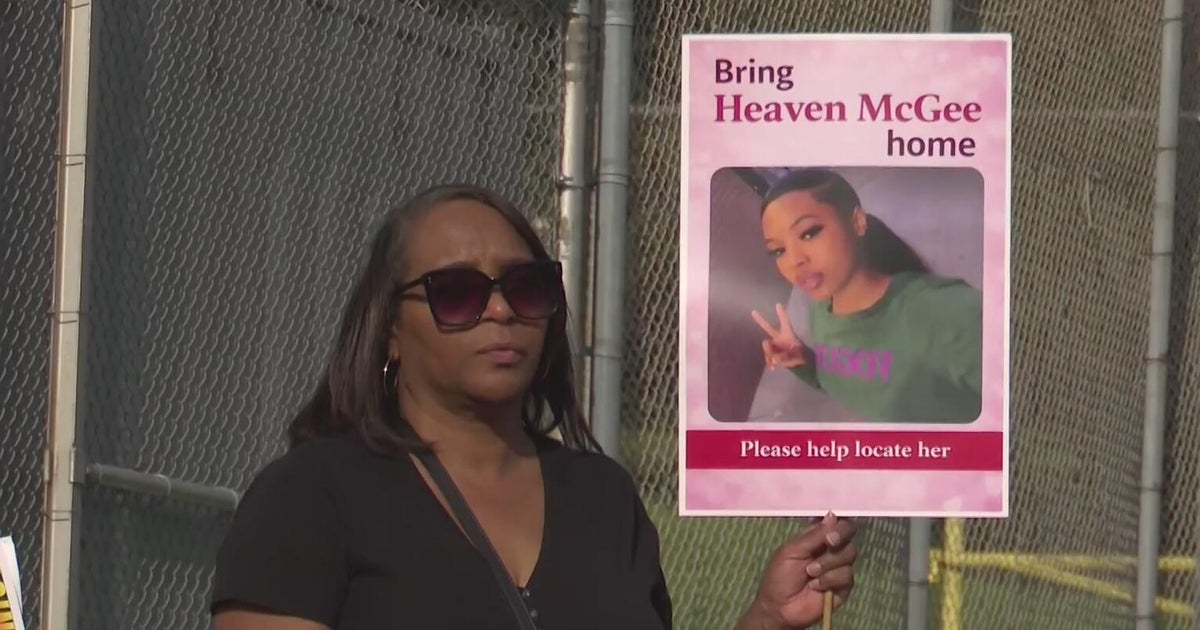Blind Chinese Dissident Chen Guangcheng Braces New Surroundings At NYU
Post Updated 7: 55 a.m., May 20, 2012
NEWARK,NJ (CBSNewYork/AP) -- A blind Chinese legal activist who escaped house arrest, endured a nearly monthlong diplomatic tussle and a hurried daylong flight paused ever so briefly upon his arrival in New York City before taking up a familiar fight.
Taken from a hospital in his homeland and put on a plane for the U.S. after Chinese authorities suddenly told him Saturday to pack and prepare to leave, Chen Guangcheng embraced his new surroundings at New York University and renewed his call to fight injustice.
"I believe that no matter how difficult the environment nothing is impossible if you put your heart to it,'' he told a cheering crowd at NYU shortly after arriving at Newark Liberty International Airport on Saturday evening.
1010 WINS reporter Garu Baumgarten reported...
Podcast
"We should link our arms to continue in the fight for the goodness in the world and to fight against injustice. So, I think that all people should apply themselves to this end to work for the common good worldwide.''
Chen was suddenly allowed to leave China earlier in the day, ending a dispute that tested U.S.-China relations.
Dressed in a white shirt and khaki pants and using crutches, his right leg in a cast, Chen was greeted with cheers when he arrived at the apartment in Greenwich Village where he will live with his family. The complex houses faculty and graduate students of New York University, where Chen is expected to attend law school.
"For the past seven years, I have never had a day's rest,'' Chen said through a translator, "so I have come here for a bit of recuperation for body and in spirit.''"Thousands of thoughts are surging to my mind,'' Chen said at the airport. His concerns, he said, included whether authorities would retaliate for his negotiated departure by punishing his relatives left behind. It also is unclear whether the government will allow him to return.
Chen's departure to the United States marks the conclusion of nearly a month of uncertainty and years of mistreatment by local authorities for the activist.
After seven years of prison and house arrest, Chen made a daring escape from his rural village in late April and was given sanctuary inside the U.S. Embassy, triggering a diplomatic standoff over his fate. With Secretary of State Hillary Rodham Clinton in Beijing for annual high-level discussions, officials struck a deal that let Chen walk free, only to see him have second thoughts, forcing new negotiations that led to an agreement to send him to the U.S. to study law -- a goal of his -- at New York University.
Chen's supporters welcomed his departure. "I think this is great progress,'' said U.S.-based rights activist Bob Fu. "It's a victory for freedom fighters.''
The 40-year-old Chen is emblematic of a new breed of activists that the Communist Party finds threatening. Often from rural and working-class families, these "rights defenders,'' as they are called, are unlike the students and intellectuals from the elite academies and major cities of previous democracy movements and thus could potentially appeal to ordinary Chinese.
Chen gained recognition for crusading for the disabled and for farmers' rights and fighting against forced abortions in his rural community. That angered local officials, who seemed to wage a personal vendetta against him, convicting him in 2006 on what his supporters say were fabricated charges and then holding him for the past 20 months in illegal house arrest.
Even with the backstage negotiations, Chen's departure came hastily. Chen spent the last two and a half weeks in a hospital being given medical treatment for the foot he broke escaping house arrest. Only on Wednesday did Chinese authorities help him complete the paperwork needed for his passport.
Chen said by telephone Saturday that he was informed at the hospital just before noon to pack his bags to leave. Officials did not give him and his family passports or inform them of their flight details until after they got to the airport.
Seeming ambivalent, Chen said that he was ``not happy'' about leaving and that he had a lot on his mind, including worries about retaliation against his extended family back home. His nephew, Chen Kegui, is accused of attempted murder after he allegedly used a kitchen knife to attack officials who stormed his house after discovering Chen Guangcheng was missing.
"I hope that the government will fulfill the promises it made to me, all of its promises,'' Chen said. Such promises included launching an investigation into abuses against him and his family in Shandong province, he said before the phone call was cut off.
Chen's attendance at New York University comes from his association with Jerome Cohen, a law professor at the university who advised Chen while he was in the U.S. Embassy. The two met when the activist went to the United States on a State Department program in 2003, and Cohen has been staunch advocate for him ever since.
"I'm very happy at the news that he's on his way and I look forward to welcoming him and his family tonight and to working with him on his course of study,'' Cohen said earlier Saturday.
Much as Chen has said he wants return to China, it remains uncertain whether the Chinese government would bar him, as they have done with many exiled activists.
"Chen's departure for the U.S. does not and should not in any way mark a 'mission accomplished' moment for the U.S. government,'' said Phelim Kine, a senior Asia researcher at Human Rights Watch. "The harder, longer term part is ensuring his right under international law to return to China when he sees fit.''
Wu'er Kaixi, an exiled dissident who is on China's list of most wanted student leaders for the 1989 Tiananmen Square demonstrations, made a third unsuccessful attempt Saturday to turn himself in at a Chinese Embassy, this time in Washington, D.C.
However, Chen's friends and supporters cheered Chen's departure. Teng Biao, who had urged Chen after he left the U.S. Embassy to leave China for his personal safety, welcomed the family's departure.
"I feel happy that he and his family can have a normal, free life in the United States with their safety ensured,'' Teng said.
Nanjing activist blogger He Peirong, who picked Chen up outside his rural village after his escape and spirited him to Beijing, said, "I hope that this will be a good beginning.''
(TM and Copyright 2012 CBS Radio Inc. and its relevant subsidiaries. CBS RADIO and EYE Logo TM and Copyright 2012 CBS Broadcasting Inc. Used under license. All Rights Reserved. This material may not be published, broadcast, rewritten, or redistributed. The Associated Press contributed to this report.)







